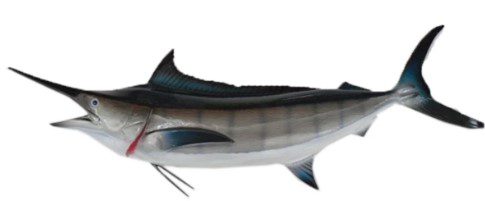

Marlin is a large fish species that is suitable for occasional consumption by dogs. It is a good source of protein, DHA and EPA omega-3 fatty acids, niacin, vitamins B6 and B12, iodine, magnesium, and selenium. While marlin can be beneficial to dogs, the high mercury content makes it important to limit their consumption.
Marlin provides a variety of important nutrients to dogs, including protein, vitamins B6 and B12, iodine, magnesium, selenium, and especially DHA and EPA omega-3 fatty acids, which are beneficial for heart health.
Marlin possess a high mercury content, so excessive or frequent consumption can lead to mercury poisoning. Additionally, marlin fish bones are a choking hazard and can cause stomach blockage, while raw marlin can contain dangerous parasites and bacteria.
Due to the high mercury content in marlin, it is not recommended to serve it as part of your dog’s regular diet. If your canine does happen to share some marlin, any potential risks can be minimized by thoroughly preparing it before serving.
Marlin is not a commonly used ingredient in dog food but is sometimes given as an occasional snack. It is a large fish species found mostly in tropical or temperate waters, though appearances vary across its range. Marlin has potential health benefits for dogs due to its protein and DHA and EPA omega-3 fatty acids, niacin, vitamins B6 and B12, iodine, magnesium, and selenium content—all valuable nutrients in canine diets. However, marlin is high in mercury, so it’s important to limit the amount consumed by your pup.
Marlin is not particularly affordable and is not always easy to access, so it’s not routinely used for dogs. If you are set on feeding your pup marlin, thoroughly cook it to minimize any associated risks, and avoid giving marlin fish bones, which are a choking hazard and can cause stomach blockage. Other similar fish with lower mercury and fat levels that may be suitable alternatives include trout and herring. Are you aspiring to feed your dog with marlin? Have you ever used marlin to feed your dogs?
We’d love to hear your experiences with marlin or see your serves for your pup! And remember to always talk to your vet before introducing any new food into your dog’s diet. Sending a warm "hello" to all the furry friends out there!